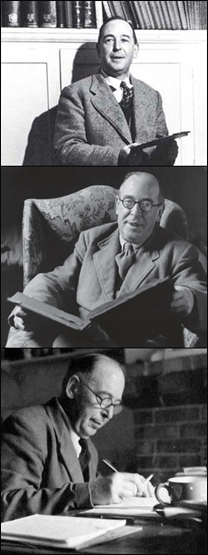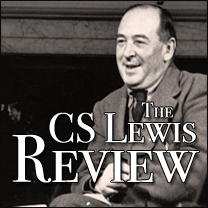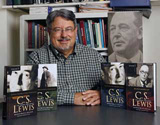
C. S. Lewis on Language
April 9th, 2015 | Skip to comments
C. S. Lewis saw language as a defining characteristic of what it means to be made in the image of God.
We possess the gift of speech from a verbal Creator—the God of the Bible speaks, and his speech is itself an expression of His creative power. Indeed, just as the Biblical God speaks the universe into being, Lewis depicts Aslan, the Creator King in Narnia, as one who sings it into existence.
Possessing the power of speech ourselves, we languaging creatures, made in God’s image, are both sentient and social, we are aware of self and other selves, and thereby capable of extending and maintaining fellowship not only with fellow creatures, but also with a Transcendent, Infinite Being who is yet also a Person. A man or woman is never more like God than when he or she is “doing things with words.”
In his important essay “Christianity and Literature,” (Christian Reflections, pp. 1-11), Lewis offers one of his most endearing tributes to the person of Christ, portraying the Eternal Logos, as depicted in the Gospel of John, as an apprentice to his Father in Heaven. He “who does only what He sees His Father doing,” is a wordsmith as much as a carpenter, crafting words of life and redemption to a fallen world desperate for good news.
Language thematically often plays a key role in defining the plot and refining the characterization in much of Lewis’s fiction. For instance, Ransom, his philologist protagonist in the Space Trilogy, discovers much of what it means to be human—and, by contrast, inhuman—in his exploration of the language and contrasting roles and means of communication among sorns, hrossa, and pfifltriggi on Malacandra.
While on Perelandra, Ransom discovers to his horror the limitations of words and the end of mere reason when he reluctantly obeys the command to kill the Unman with an act of physical courage. Words only sometimes cannot do the work of God; action beyond words is necessary. Finally, in the climactic scene on Earth in That Hideous Strength, Belbury disintegrates into a Babel of violence, as language ceases to “mean,” and cacophonous evil is conquered in a reversal of Pentecost.
In his literary scholarship, Lewis is himself an accomplished philologist and linguist, an astute chronicler of words, ideas, and meanings and their impact on texts and culture over time—something he learned a great deal about from his friend, Own Barifled. Much of his literary history demonstrates his mastery of denotation and more importantly, connotation and cultural context, in understanding poetry and prose.
Scattered over his books and essays are incisive reflections on the nature of language and its role in equipping reason for objective inquiry into the nature of things and fueling the imagination for the apprehension of moral and eternal truth. Studies in Words, published in 1960, represents Lewis’s most sustained treatment of language from a metaphysical point of view, offering elaborated histories of key words and concepts–epoch-making ideas such as “nature,” “free,” “world”—in western civilization.
The truth is, Lewis was always and everywhere pointing his readers to a conception of language that upheld its heuristic and epistemic functions, that is, its utter suitability in enabling mere human beings to observe, discover, and express both mundane and profound truth in tolerably accurate and ultimately reliable ways.
Lewis was a lifelong anti-positivist, opposing the notion that there could be a neutral, “scientific” way of speaking that avoided metaphor or “poetic diction.” Under the influence of his friend and linguistic mentor, Barfield, Lewis saw language as “incurably” metaphorical, inevitably and simultaneously referring hearers/readers to complex but fathomable relationships among items, persons, concepts, and cognition.
“Meaning-making” seem to take place on one basic plane of existence that we tongue-in-check and assuredly advisedly call “literal,” but language is really always pointing us backwards and forwards in time to ever deeper, resonating layers of meaning and significance that lay beyond any single soul, lifetime, or civilization. Our speech betrays our fallenness, yet also provides a bridge to the future that can lead to our redemption.
In particular, as a cultural critic, Lewis was acutely aware of the necessity of defending language as an adedquate tool to allow human beings to see and not just “see through” this world. In The Abolition of Man he takes great pains in to analyze the pseudo-positivism and incipient deconstuctionism of “the Green Book,” an elementary composition textbook that implicitly denied humans could utter predicates of value.
Here, as elsewhere, Lewis thus understood “rhetoric” in its traditional classical and medieval sense—a compendium of verbal tools that assisted and equipped an artist or essayist with strategies to communicate truth more memorably, to express difficult ideas more accessibly, and, ultimately, especially for the would-be apologist, to make the claims of Christ unavoidable.




Comments
No comments yet.
RSS feed for comments on this post.
Sorry, the comment form is closed at this time.